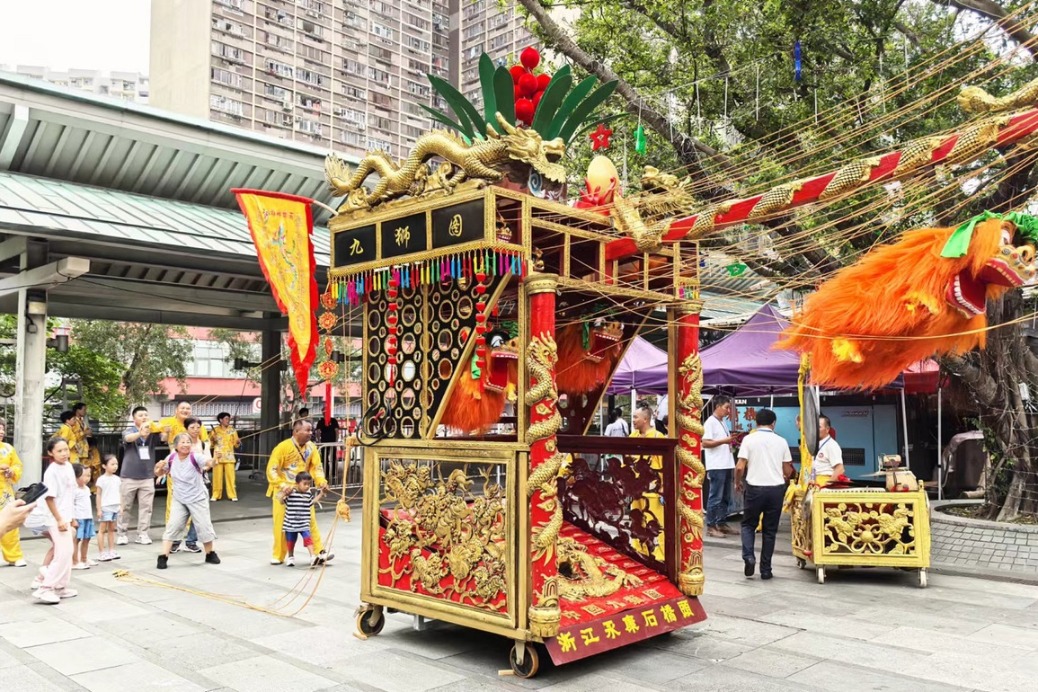From little seedlings large profits grow


At a small plantation on the northern edge of the Himalaya Mountains range in the Xizang autonomous region, lingzhi mushrooms are being cultivated to increase the local income.
A medicinal fungus, lingzhi, also known as reishi mushroom, is traditionally foraged from the wild.
In a row of dim, humid single-story outbuildings, lingzhi spores are carefully grown into seedlings to be planted in nearby greenhouses. Close by, freshly harvested lingzhi mushrooms are neatly arranged on shelves to be dried for market.
This process has become all too common at the Red Sun Family Farm in Manling in Xizang's Nyingchi city, where efforts to grow medicinal herbs and fungi are changing lives for the better.
Cheng Pan, a local Party official, said the farm has become a cornerstone of their agricultural landscape.
The farm, which yielded 15 metric tons of dried lingzhi last year, is supplying seedlings and technical support to about 400 lingzhi-growing families in Manling to increase output.
"The growth is exponential," he said, emphasizing that lingzhi cultivated in Manling boasts superior quality compared to counterparts grown in lower-altitude regions, making them highly sought-after in the market.
The fungi are believed to enhance the immune system, helping the body fight off infections and illnesses, and have been used in traditional Chinese medicine for thousands of years.
Lingzhi mushrooms are being mass-produced in greenhouses as part of a growing medicinal farming industry in Manling. Just a few kilometers from the farm, the local government has collaborated with pharmaceutical companies from wealthier regions to cultivate beimu, or Fritillaria cirrhosa bulbs, a herb related to lilies, traditionally used for cough relief.
In a nearby pine forest, workers are excavating pits to sow seedlings of huangjing, also known as King Solomon's seal, which produces a herb known for its anti-inflammatory, antioxidant and immune-modulating properties.
Cheng said mass-producing such herbs can actually relieve pressure on the natural environment.
"Based on our current estimates, if we want to meet the high demand by having people dig wild beimu in the mountains, it is highly probable that within just two to three years, this species will be driven to extinction," he said.





































